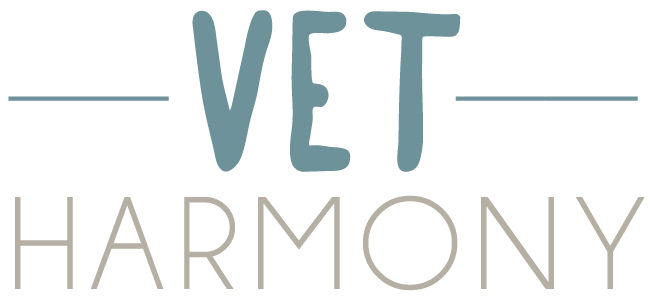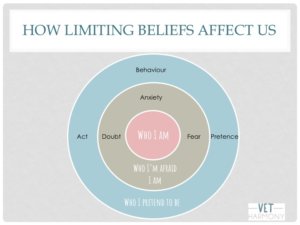When I get clients on their Exploration call with me, the conversation usually goes something like this:
ME: So what’s not working for you right now?
CLIENT: I’m not sure if I want to be a vet anymore. I work very long days and often feel depleted with no time or energy left for hobbies or family. I feel powerless and trapped, I like the idea of diversifying but I don’t know what I would go into or how to find out about it. Or I’m not sure if the problem is just me, and if I were in a more supportive/better run/lower hours/more pay/better clinical opportunities/fill-in-the-blank practice, then I’d be happy doing clinical work. Or maybe I just need to change my mindset?
The truth is that none of these are actually the real problem.
The underlying problem most of my clients actually have are not related to the long hours, the poor pay, the client pressure, the lack of clinical confidence, poorly managed practices with unreasonable bosses, not knowing if you want to stay clinical or not, the lack of a definite goal and future plan, fear of change or failure, fear of a pay drop, fear of how you might be perceived if you try something new or any of those things.
The actual problem is that they have lost touch with themselves and who they truly are underneath all the protective layers they have built around themselves.
We ALL do this but there’s nothing like the emotive pressures of working as a clinically practicing veterinary surgeon to drive the need to self-protect to a greater level than most!
At the centre of each of us is the true experience of our unique selves; our values, heart and soul. This is “Who I really am” and is that part of us that never changes.
Then well-meaning parents and teachers come long and point out our failures to us, and speak to us in a way that makes us feel there is something wrong with us, rather than just with our behaviour or performance.
This is compounded by poor management in veterinary practices where you may have been criticised in front of colleagues for perceived mistakes or by clients.
Over the years more and more of this central core can become hidden beneath layers of fear, anxiety and self-doubt. We then become “Who I’m afraid I am” and forget who we are. This second ring is the home of our limiting beliefs and we begin to live as if this second ring is the truth about us.
But we’re an intelligent bunch as vets, most of us are too clever to walk around letting our fears hang out for all to see, so we tend to play the game of life with an outward mask of bravado and confidence.
We then pile on another layer to hide the fears – “Who I pretend to be”.
Most damagingly, when we lose touch with the central core we fall into the trap of thinking that the ‘real’ me is the middle ring – the well-known ‘Imposter Syndrome’.
So what’s the problem??
THIS ring is where most of my clients are thinking and attempting to make decisions from when they first reach out for help.
When we operate from the outer and more superficial ring, we fall into the trap of trying to make decisions that gain the approval of others rather than speaking and acting honestly and authentically.
This makes it virtually impossible to decide whether you actually want to be a vet or not, because that outer ring is driven purely by what other people want, need or expect from you.
As it’s impossible to be all things to all people, or to live up to a professional expectation if it’s not in alignment with who you are underneath, this then becomes exhausting and demoralising.
Three important steps to take if you want to solve this:
1.) Increase your level of self-awareness of how your individual brain works and what you need to do more of or less of in order to function properly and feel happy. The most authentic people I know understand and fully accept themselves, and they arrange their life in a way that works congruently with this.
2.) Start to examine the ways in which you personally attempt to self-protect – is it via perfectionism? Numbing your feelings with caffeine/alcohol/facebook or being overly busy etc.? Learn how to start slowly putting down the armour and building your resilience so you can gradually reconnect with yourself.
3.) Work out your core personal values and really think about and write down how you want your life to be so you can then work out the best route to get there. Then, and only then, will you GENUINELY be able to make the decision as to whether clinical work is the right fit for you or not.
If this all sounds like a lot of hard work, it doesn’t have to be. Making that long journey from “what will people think” to “I am enough and this is me” is uplifting, empowering, motivating and comes with a big joyous side-order of rediscovering your mojo!
You can do this yourself by reading and watching personal development books and audios, following self-help or coaching thought-leaders and participating in supportive Facebook groups.
Often though it can be hard to self-motivate and to see your own blind spots, or to practically apply the concepts you learn about.
This is where coaching can really help you make that breakthrough. If you’re ready to fast-track your journey and not go it alone then these are the exact processes we teach and work through with our clients as coaches.
There’s nothing like waking up in the morning, free from any sense of dread in your tummy and knowing you are on the right path for you 💗
This is my wish for you for 2019 and if you’d like any help in achieving this, I am always here to help.
Jenny. x
P.S. If you’d like a regular fortnightly dose of mindset wizardry in your inbox to inspire you, I’d love you to join the Vet Harmony Community here.



